Saturday, 17 June 2006
Distance 15 km
Duration 2 hours 55 minutes
Ascent 91 m, descent 42 m
Map 36 of the TOP 100 blue series (now superseded)
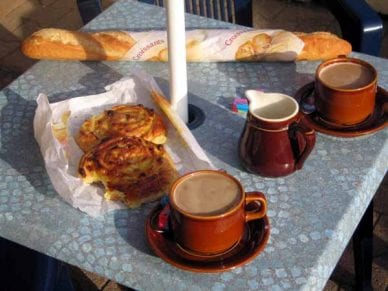
Our walk today was not going to be long, so we could afford to laze a bit in the morning. Anyway, we could not leave until we got some bread for our picnic meal this evening.
Even before we got back to the Porte d’Arroux we found a boulangerie and a bar beside it, at which we took our coffees in the slanting morning sunshine.
Before setting off properly we visited the Temple of Janus in a field over a footbridge.
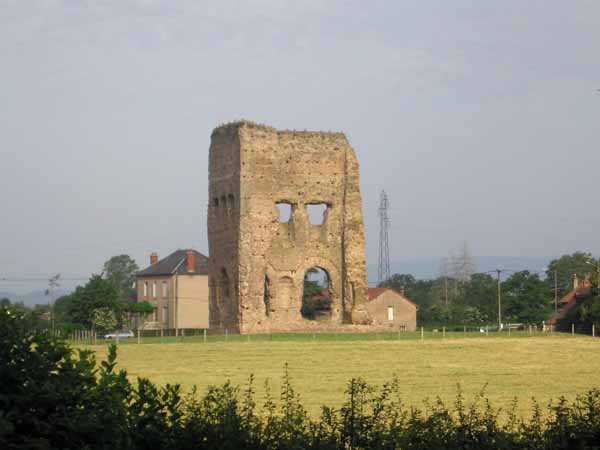
This strange edifice was a Roman copy in stone of a traditional Gaullish temple, which had been traditionally made of wood – evidence of the lengths the Romans went to make the locals feel at home in Autun
Our way to Sommant was on tiny back roads, following the valley of the river Ternin, through farms and woods. It was not the way we expected to be going, but it turned out very pleasant.
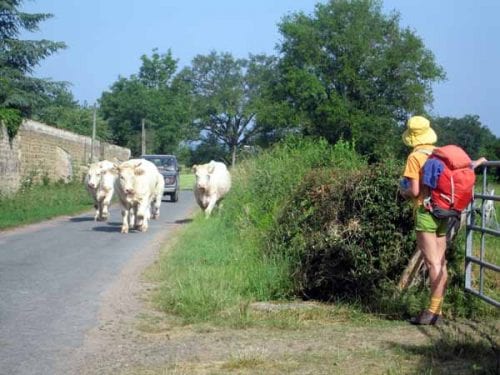
Hay bales lay like great blonde cheeses in the fields and we passed some gleaming artificial lakes. There were almost no cars, but our way was blocked briefly by a herd of cattle.
An elderly cyclist wobbling in the opposite direction told us there was a little café in the village of Tavernay, already visible with its tall steeple at the foot of the slope.
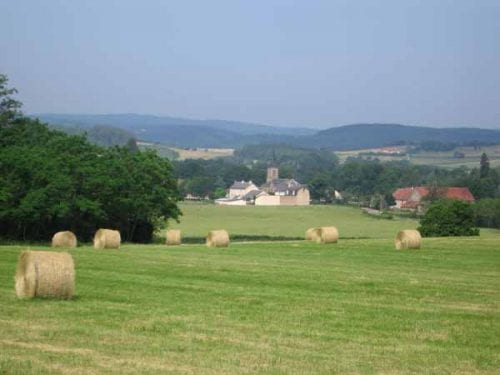
We were the first customers of the day in the snug little wooden café.
The barman was reading the paper with the chairs still upended on the tables, but he hastily put things to rights for us and we had our second round of grands crèmes for the day.
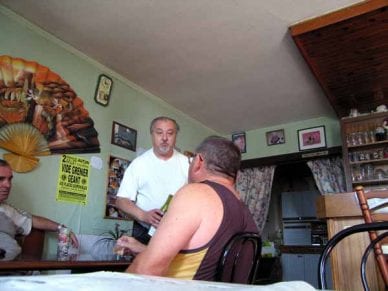
The place filled up with burly singletted farmers, who told us we could get to the main Sommant road via a grassy lane and a footbridge, instead of having to go the way of the cars.
Once on the road, it was only an hour or so until we saw the church and houses of Sommant rising ahead of us across the fields, backed by a wall of forest.
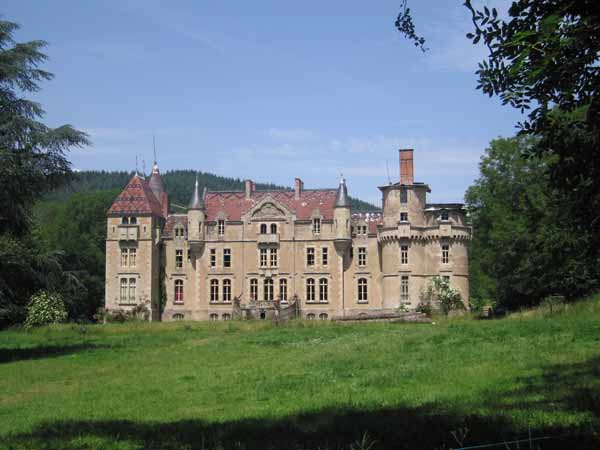
The camping was in the grounds of a château, reached by a long driveway. On either side, among the crowding trees, were massive stacks of logs arranged as walls.
Reaching a clearing, we saw an unkempt lawn, beyond which a double staircase led up to a monumental grey pile, still majestic although now very dilapidated.
Its roofs and turrets, patterned with Burgundian enamel tiles, shone freshly above the general decrepitude.
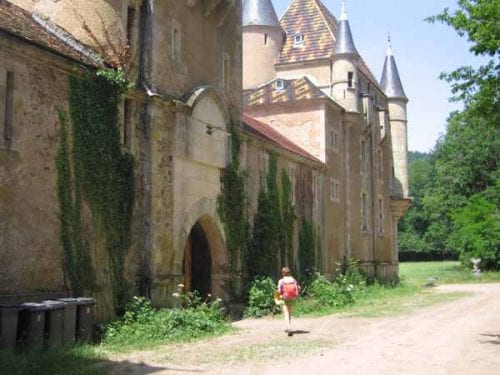
We entered the courtyard through a yawning archway at the side and went up to the dark cavernous reception hall, with its dusty chandeliers and rows of severed animal heads on the walls.
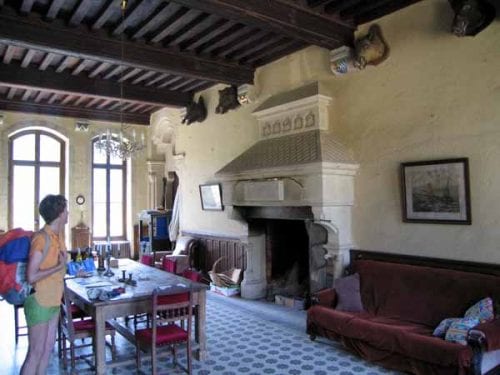
Paying our €9 to the steel-wool-haired Dutch woman, we proceeded to a wide meadow hemmed in by gigantic trees, where our elderly host was plying his ride-on mower.
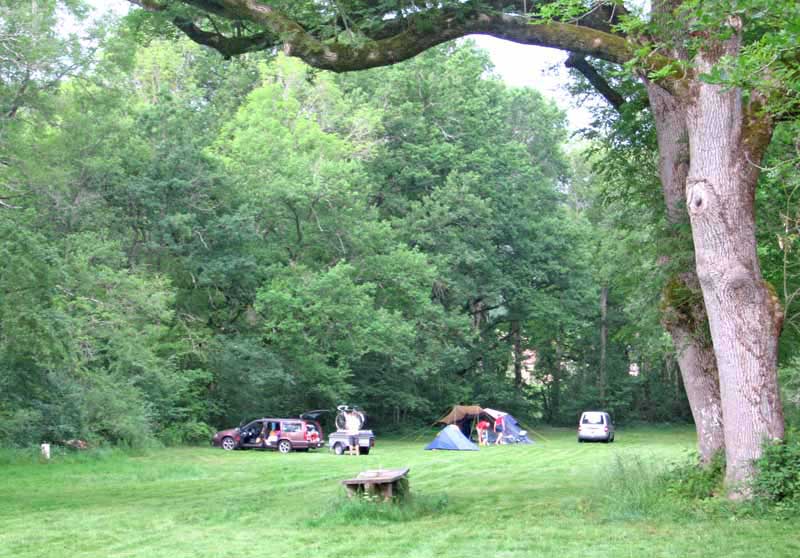
We put up our little tent among the grand motor homes and canvas palaces already there, most of them Dutch.
The showers were in a sort of dungeon under the château, dark and threatening, but the amenities were sparklingly new, a rather incongruous combination.
After lunch and a rest, we looked around the village, which was small and unremarkable.
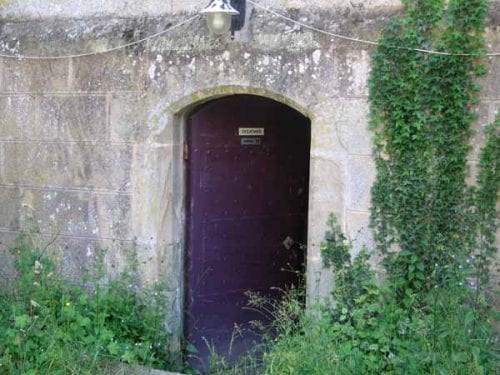
In the evening we took our bread and sausage to the weedy courtyard and ordered a bottle of house wine from our hostess.
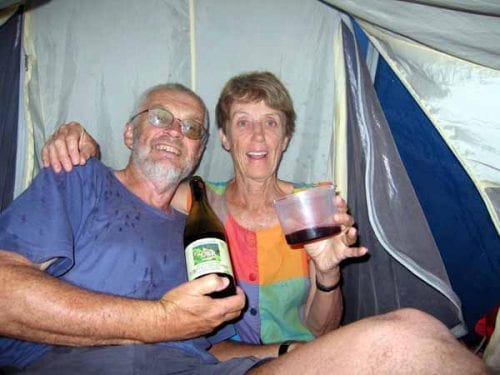
No sooner had she brought it than we were overcome by a pounding rainstorm which made us sprint back to our tent, so the picnic became a cosy feast in our sleeping bags.
Previous section: Cluny to Autun